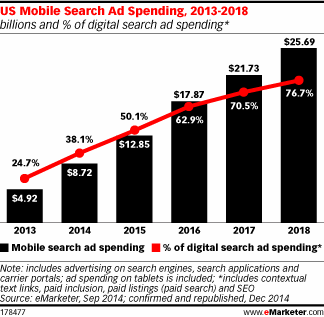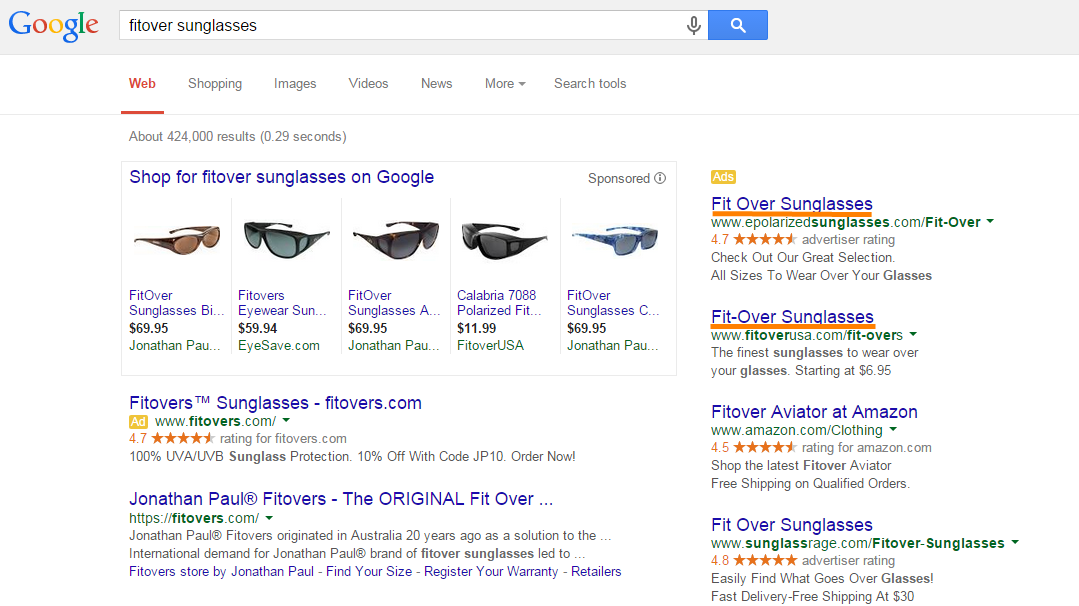[display-name-category]
[post_author]
So it’s been a while since you first hit the enable button on your campaigns and you know that leaving it on auto-pilot is just not an option. You notice a decline in metrics, performance and even worse, you notice the money you’re putting in, is not doing anything for your business.
It’s a hair-pulling situation but rest assured that with AdWords there is always hope by taking a closer look at the culprit to trigger a strategical solution.
Keeping up to date with your campaign metrics and researching strategies to enhance performance is a game changer. Here are 5 of the biggest problems AdWords advertisers face and how you can combat them.
1) Not Enough Tweaking Your Campaign
Giving your account at least 30 minutes of your time at least once every two weeks can make a huge difference in its evolving performance. Within this optimization, you should analyze statistics to implement any strategy.
I would highly recommend taking note of the changes made, so as to ensure that when you revisit campaign performance and observe a positive or downward trend you know exactly where to trace it back to.
No campaign is perfect since the beginning of the launch, which is why you should pay particular attention to small details. Metrics and performance can highly depend on your negative keywords list at campaign or ad group level, ad extensions, or even replicating your Ads to be mobile preferred.
To get more ideas on specific optimizations you can perform on your account I would suggest reading 7 Optimization Tips to Turn Underperforming AdWords Campaigns Around, a post by one of my colleagues, Carlos Rodriguez.
2) If You’re Not Into Mobile Then You Better Start
Mobile has become a big boom for search and along with its evolution lies the fate of your PPC advertising efforts for your business. Therefore getting your business marketing efforts in sync with mobile devices should be a top priority. I would suggest starting off by determining if your website is mobile-friendly, making sure that your campaigns are mobile-optimized in Ads and Avg. Position and consider looking into replicating your call extension to mobile.

To get a deeper read into ways you can mobile-optimize read up on the following blog:
3) Think Your Competitors Are Outsmarting You?
It’s true, your brand name is most likely being used as a keyword by your competitor. And although you might seem inclined to do the same, I would highly suggest creating 2-3 Ads for your brand name.
The chances are that, if you aren’t advertising for your brand, your competitors already are or will. Take advantage of the fact that you are 100% relevant to your brand hence giving you the upper hand to Ad Rank positioning. So wait no longer and get started on creating a brand ad group in your campaign as soon as possible.

4) High Volume of Poor Quality Traffic
Who wouldn’t want more visitors to their site at an accelerated rate? But think about it, increasing the budget just for the sake of getting a higher volume of clicks and impressions, is just not wise. It’s a fingers-crossed situation in which you don’t have specific goals set in place and most importantly have not considered that there are strategies to increase your traffic in a healthy way, which is why I would suggest the following tips:
Goals: Increase CTR%, reduce cost and increase qualified traffic
- Go over search terms within the past month in your campaign and exclude any of them that are irrelevant to your business and generating cost.
- You may have similar ad groups within your campaign that are tightly themed, therefore, it would be a good idea to incorporate negative keywords at an ad group level to avoid competition among ad groups.
- Making sure your ad groups are highly relevant to their Ads and Keywords (tightly themed)
- Avoid using broad match keywords and use BMM (broad match modifier) for keywords more than 2 words long. I highly recommend using 2 worded keywords or less as a phrase or an exact match.
These are just a few tips that can help you generate the quality in traffic volume you are looking for, to find out more check out:
- The Ultimate Negative Keyword Checklist For Small Business Owners
- 3 Steps To Improve Your Quality Score – Shark Bite
5) Converting to Keyword Oblivion
For any business owner, the bottom line for advertising online with PPC is to generate sales. Period. And one of the most important metrics on your priority list should be conversions/leads. Pinpointing which keywords are generating revenue for your business is of the essence and considering these couple of tips can make a huge difference in doing so:
Set Up Proper Tracking
Set up proper tracking for conversions in your account: Calls, Forms Filled, Ecommerce for purchases, and even consider creating goals in Google Analytics making sure they are properly imported to the account. Tracking is definitely in my bible of best practices for AdWords.
Use Your Ad Budget Wisely
Make sure you are putting money where the happening is, by:
- Increasing bids to improve average position on converting keywords
- Pausing keywords that have generated high cost and 0 conversions
- Reviewing your campaign and pausing any keywords that might be in BMM match singular and plural. Example: +phone +repair and +phone +repairs these two keywords would be competing against each other hence just generating cost, stick with the version that has the best metrics.
A Little Management Goes a Long Way
Consider your AdWords account needs in performance. By analyzing and optimizing your campaign on a bi-weekly basis and implementing strategies aimed to reach specific goals set for your business, you can most certainly avoid these top 5 problems faced by AdWords advertisers.





